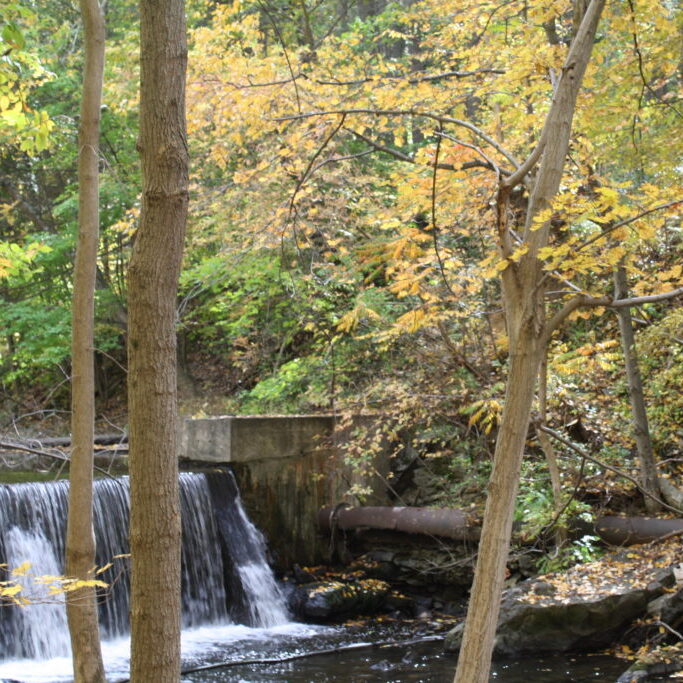Requirements for Small Scale Hydropower
tInstalling a microhydro system on an existing legacy dam involves many steps. Dam owners will have to consider each of the areas below when deciding microhydro is right for you.
LEGAL
Sawkill Project
Bard College is the owner of two small dams along the Saw Kill, and is investigating the possibility of converting those dams to productive use for low impact hydropower production. Interested in learning more? Read the most recent blog posts and updates here.

Options for Small Scale Dams
Check out the most commonly asked questions about microhydro.
Micro hydropower refers to hydroelectric systems that produce up to 100 kilowatts of electricity. Most of the hydropower systems used by homeowners and small business owners, including farmers and ranchers, would qualify as micro hydropower systems. “Micro” refers to systems up to 100 kilowatts, but a 10-kilowatt micro hydropower system can generally provide enough power for a large home, a small resort, or a hobby farm.
References: https://www.energy.gov/energysaver/buying-and-making-electricity/microhydropower-systems
Hydropower is considered “clean energy” because it is produced without the burning of fossil fuels. However, a micro hydropower system can have other environmental impacts at the site of the system and further downstream.
Micro hydropower systems are one of the lowest CO2 sources of energy that are available. The reason that hydropower has an effect on GHG is not the power generation itself, but the changes made to surface land and water in order to generate hydropower, particularly when the reservoir is new. However, a micro hydro facility might use no sizable impoundment of water, or at least a much smaller reservoir that covers a smaller area, much of which may have been rocky stream beds before. The increased contribution of GHG is most pronounced in the earliest years after the reservoir has been established. A micro hydro installation on a dam that has been in place for decades would not be likely to introduce significant new GHG sources.


